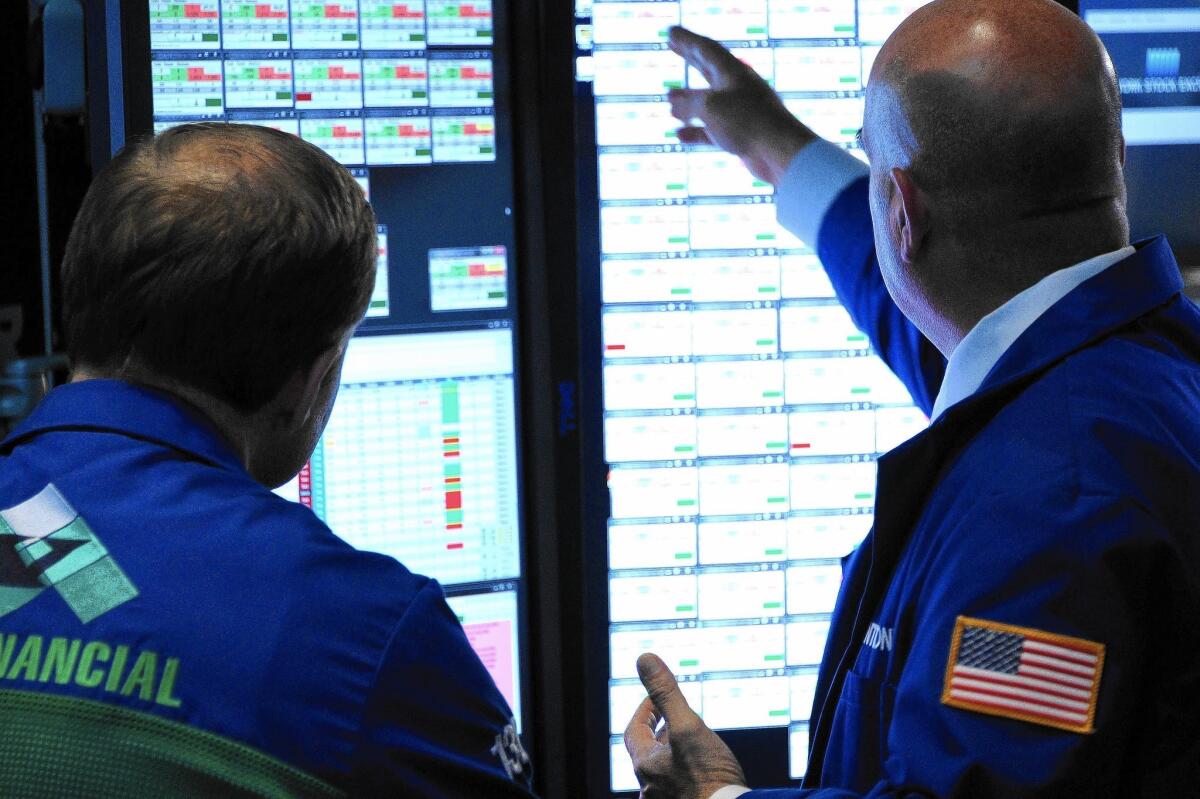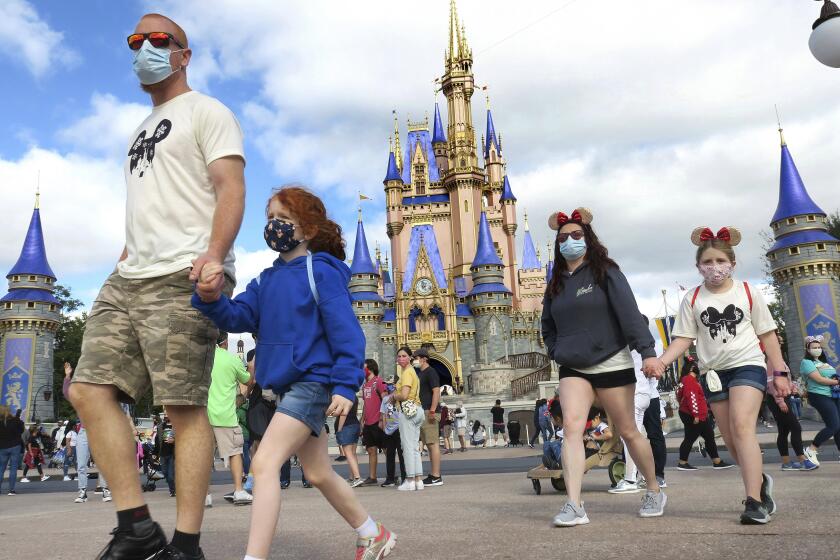Big stock market swings to be the norm for a while

- Share via
Don’t expect Wall Street to get tame any time soon.
The wild gyrations seen in recent days will probably continue as investors weigh worries over the sluggish global economy with the prospects of the Federal Reserve’s easy-money policies coming to an end, analysts and economists say.
“Keep your seat belts fastened,” said Tom Galvin, managing director of investment firm City National Rochdale, which manages about $24 billion.
The Dow Jones industrial average fell 334.97 points Thursday after hitting a record gain for the year just the day before. It was the fourth 200-plus swing in five trading days. There hasn’t been this much volatility since August 2011, when Standard & Poor’s downgraded the country’s credit rating.
Since then, the Fed’s monetary policies had put a check on sharp declines in the stock market, leading to an unusual period of stability and rising prices.
But Wall Street has become increasingly anxious about exactly when the central bank will raise rates and end its massive bond buying program that has helped stabilize the stock market.
That has prompted investors to pay closer attention to underlying global economic data, which has been mixed, and as such, has sent stocks soaring sharply one day only to plummet the next.
“The market has gotten accustomed to the Fed being there, and the Fed is stepping away,” Galvin said.
On Thursday, the market turned its attention to Europe. And once again the continent disappointed.
Germany reported that exports fell 5.8% in August from a month earlier, raising concerns of a recession in Europe’s largest economy. Earlier this week, the International Monetary Fund downgraded its forecast for the world economy, citing a weak Europe and slower growth in some emerging markets.
There’s fear that Europe’s weakness, coupled with slowing growth in China and Japan, could prove a drag on a U.S. economy that has shown signs of improvement. Large multinational corporations could scale back hiring in the United States next year if Europe can’t dig itself out of the hole, analysts said.
“The global growth story is definitely in doubt,” said Larry Palmer, managing director of wealth management for Morgan Stanley.
For typical investors, it may be prudent to diversify portfolios — either to hold a variety of stocks or other asset classes such as bonds, analysts said.
For those who recently invested heavily in stocks, it could be time to “meet with your financial adviser,” said Nicholas Colas, chief market strategist at ConvergEx Group in New York.
Thursday’s sharp sell-off followed the Dow’s best gain all year, as the blue-chip index climbed 275 points Wednesday. That upswing came after the Federal Reserve released minutes for its September meeting, which investors interpreted to mean the bank wouldn’t raise rates in the near future.
But a day later, two Fed officials threw cold water on that thesis, saying a gradual increase was likely for the middle of next year, based on current economic conditions. On top of those statements, investors largely expect the central bank to end its massive bond buying program at its next meeting, set for the end of this month.
The Dow fell nearly 2% to 16,659.25. The S&P 500 sank 40.68 points, or 2%, to 1,928.21.
But Colas said the market should close the year largely where it is today. Corporate profits are still strong, he said, and the U.S. economy is far better than elsewhere in the world.
The U.S. unemployment rate fell to 5.9% last month, the lowest rate since July 2008, as the economy added a robust 248,000 jobs.
The stable market of years past “wasn’t real,” Colas said. Historically, this week is more normal.
“This is much more what investors can expect not for just the remainder of October, but for the next year or two at least.”
Twitter: @khouriandrew
More to Read
Inside the business of entertainment
The Wide Shot brings you news, analysis and insights on everything from streaming wars to production — and what it all means for the future.
You may occasionally receive promotional content from the Los Angeles Times.











